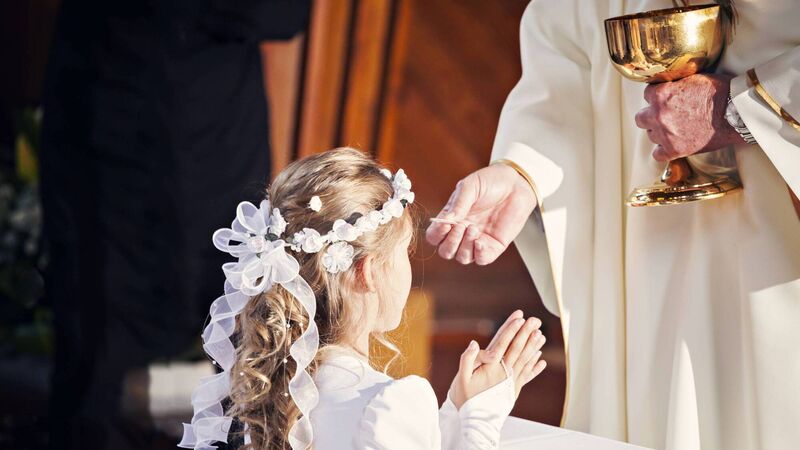The State is completely failing non-Catholic families

This month will see entire classes of young schoolchildren enjoying their First Holy Communion. File photo
Look around you this month and you may see entire classes of young schoolchildren dressed in little suits and white dresses. It is a familiar sight around Ireland at this time of year.
Who could begrudge these kids their day in the sun? Haven’t they spent months preparing for their big day? Haven’t their parents also dressed up for the occasion, and aren’t they beaming with pride? Isn’t First Holy Communion just an Irish tradition?
















